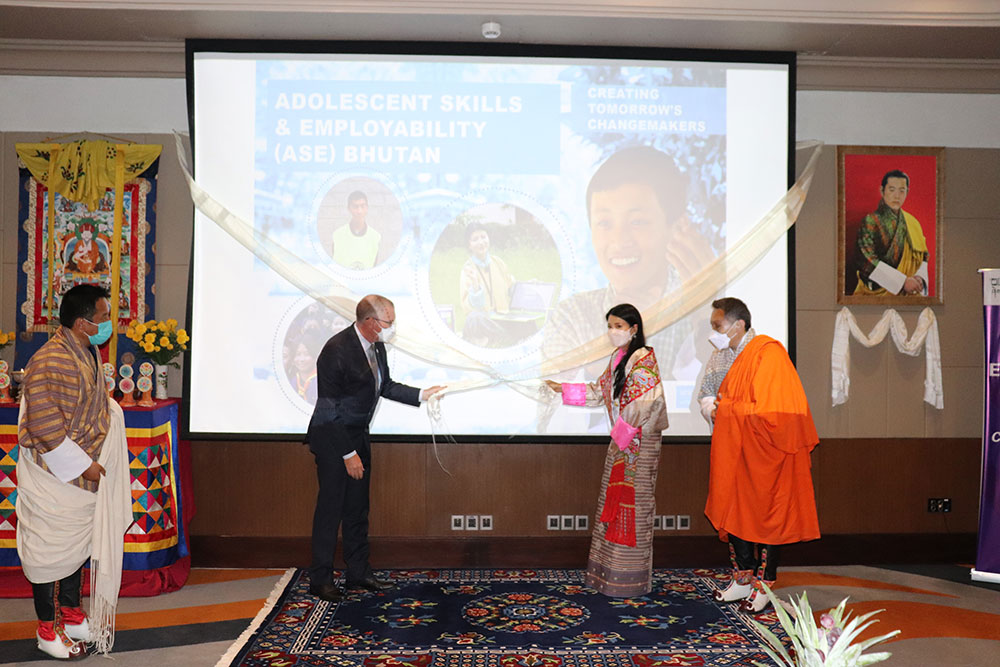Phurpa Lhamo
To equip adolescents and young people with 21st century skills from an early age, the Adolescents Skills and Employability (ASE) Bhutan project was launched yesterday.
Her Royal Highness Princess Chimi Yangzom Wangchuck, the Vice President of Bhutan Youth Development Fund, launched the project along with representatives from the UN, the government agencies, and CSOs.
Through the implementation of the project in 64 schools and 10 youth centres, around 10,000 children between the ages of 10 and 24 are expected to be involved in the project.
In the one-year project, mini-bootcamp challenges, national bootcamp and awards, and workshops would be held for the students. The students can pitch their ideas.
Soon, the implementing agency, the education ministry, will be holding an orientation for focal persons by the master trainer.
UNICEF Bhutan representative, Will Parks said that the master trainers and focal persons would roll out ASE Bhutan through two platforms—UPSHIFT, a youth social innovation and social entrepreneurship programme that supports adolescents and young people to identify problems in their communities and design solutions to tackle those problems; and UNISOLVE, a digital platform that helps young people develop the critical skills they need. “The ASE Project, UPSHIFT and UNISOLVE form part of the Generation Unlimited platform, a global multi-sector partnership that enables the largest generation of 1.8 billion young people to become productive and engaged members of society.”
The 64 identified schools are from primary to high schools across Bhutan.
An education official said a few private schools were also identified and the schools were evenly distributed among rural and urban areas, and among 20 dzongkhags. A minimum of 50 students from each school is expected to take part in the project.
Officiating education secretary, Karma Galay, said that ASE Bhutan project complements the on-going reform initiatives in the education sector including the Bhutan Baccalaureate, which has been adopted as the main platform for school education reforms emphasizes equipping the students with technological and other 21st century skills.
Will Parks said that besides foundational, digital and job-specific skills, young people need 21st Century skills to do well in school, life and work.
He added that also known as transferable skills or life skills, 21st century skills allow young people to become agile learners and global citizens equipped to navigate personal, social, academic and economic challenges. “The ASE Bhutan is an initiative that builds on the development in an adolescent’s first decade of life, to help them navigate risks and vulnerabilities in their second decade of life, and to set them on the path to fulfilling their potential.”
The ASE Bhutan project is implemented by the education ministry in partnership with Bhutan Youth Development Fund, Loden Foundation, and UNICEF.


